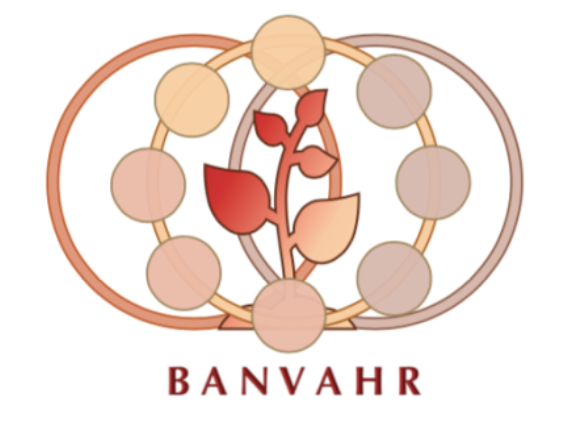BANVAHR offers information and resources to deepen one's understanding of what is (and has been) happening in Israel-Palestine. It also examines the ways the Buddha's teachings offer an invaluable perspective regarding the conflict that can help end the cycle of suffering and violence. As informed Buddhist practitioners we can take action in many different ways--as individuals; as sangha members; or with local, national and/or international peace and human rights groups. Even the smallest of acts is important. As American poet and Quaker William Stafford once wrote, "Justice will take us millions of intricate moves."
As the BANVAHR website becomes more known and established, it will provide information on specific ways to become better informed and active, such as traveling to the region with organizations like Eyewitness Palestine and Joint Advocacy Initiative (JAI) and offering support to deserving campaigns like End the Deadly Exchange. New blog postings will be added from a variety of sources: newspapers, journals, books, human rights and peace organizations, Buddhist and other spiritual/religious organizations, and submissions from individuals who have written informed, wise and compassionate reflections.
WHY ISRAEL-PALESTINE?
Because the land of Israel-Palestine is the home of all of the Abrahamic religions -- Judaism, Christianity, Islam-- it is considered by many followers of each of these religions as the "Holy Land," a sacred and holy place where prominent religious figures inspired by God (David, Moses, Abraham, Jesus, Mohammad, and many other prophets) lived and died, changing the course of world history. It is the destination of thousands of people from all across the globe eager to visit identified "holy" sites to give homage to their God and to receive spiritual blessings and inspiration.
This region also has grave geopolitical significance (particularly regarding military strategy and natural resources) for political powers such as the United States, Russia, and the European Union. Political/military control (occupation) of the region has changed hands throughout history, often accompanied by violence towards and oppression of its occupants. Since its establishment as a state 70 years ago as a refuge for Jewish people, who had for centuries experienced prejudice and persecution, and then endured the horrors of the Holocaust, Israel has had predominant control of the region, with the 4th most powerful military in the world and significant political, military, and financial support from its strongest ally, the United States. Since its inception in 1948, however, Israel has pushed its designated boundaries by systematically and illegally, according to international law, moving its population into the Palestinian Territories, creating Israeli "settlements" and claiming Palestinian land as its own.
History has repeatedly shown us that power can be used for good and for harm. If power is used unwisely in Israel-Palestine, not only are relations between peoples of the region adversely affected, but relations between and among other nations, ethnicities, cultures, and religions are affected. And rather than cultivating conditions for peace, conditions are created that foster despair, hatred and violence. If power is used wisely, change can be directed towards the benefit of all, minimizing harm and creating conditions for the security and well-being of all.
As stated by Israeli Buddhist leader Stephen Fulder, "We need to expand the view. This war is a frenzy of violence that comes because of peaceful actions and directions not taken before. The current suffering and violence prepares the ground for the next war. It is a constant chain, and we can try to prevent suffering and violence at any link of the chain."
WHAT DOES BUDDHISM HAVE TO OFFER?
As Buddhists, we are devoted to the cultivation of wisdom and compassion through practices that allow deepening insight into the nature of suffering and the conditions allowing release from suffering--not just our own suffering, but the suffering of all beings. Of key importance is seeing the truths of cause and effect (kamma); the illusion of separateness and identity (anatta); and the unwholesome effects of actions influenced by greed, hatred and ignorance. As our understanding deepens, we come to see more clearly that what happens to you affects what happens to me; what happens in this moment affects what happens in the next; what happens here affects what happens there. We do not, that is, exist alone; we are inseparable from the greater whole.
The Buddha saw all of this clearly and provided a detailed framework, the Ennobling Eightfold Path*, as a way to end suffering. He saw as the centerpiece of this path day-to-day living informed by moral/ethical qualities of heart (sila), and he provided a guide for life practice. Buddhism teaches us that how we speak, act and make our living and spend our time contributes to or lessens the experience of suffering. Like most religious traditions and spiritual practices, we are called to "do no harm"-- to speak and act in ways that are of benefit to all beings.
In ways different from other religious traditions and spiritual practices, the teachings of the Buddha guide us inwardly through meditation practices specific to the cultivation of qualities such as kindness, compassion, sympathetic joy and equanimity; the development of concentration (samadhi); and the development of insight/wisdom (panna) to help us uproot the tenacious, harmful tendrils of unwholesome qualities of heart and patterns of behavior harmful to ourselves, to others and to the world as a whole. The Ennobling Eightfold Path is an integrated path, each aspect of the path important and inseparable from the others. When practiced as a whole, it is possible to stop and to prevent from developing the conditions necessary for the continuation of violence and suffering.
*1) right view, 2) right intention, 3) right action, 4) right speech, 5) right livelihood, 6) right effort, 7) right mindfulness, 8) right concentration "right" meaning wholesome, appropriate, skillful
